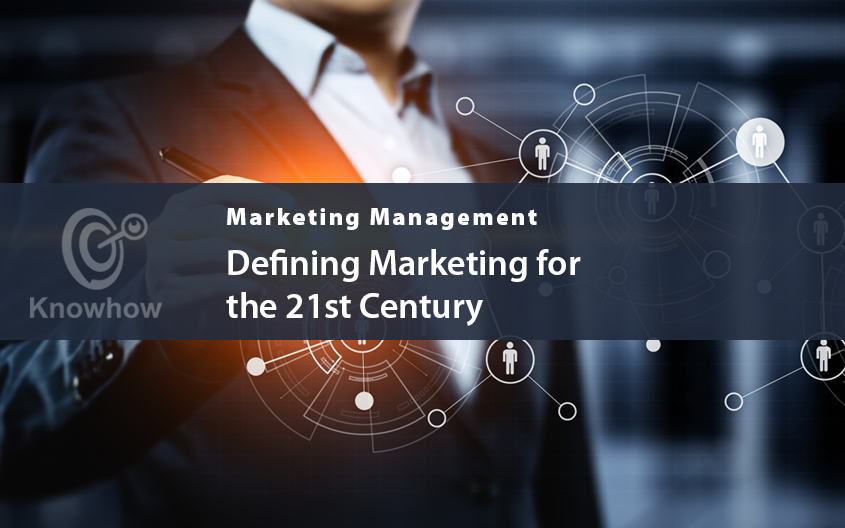
The technological innovations of the 21st century have brought the development of a new economy. However, the new economy is a product of the evolution of the old economy. So in order to fully understand the new, one would have to understand the basics of the old economy.
The economy that we now call the “old economy” found its starting point with the industrial revolution. Businesses were finally capable of manufacturing large quantities of standardised goods.
The increase in production speed also gave companies a chance to reach larger audiences. And as the production increased, companies began spreading their influence beyond the boundaries of their native countries. The old economy also gave us organisational hierarchies. Top management would relay the orders to the middle management who would oversee the workers.
On the other hand, we have the new economy. The buying power of the consumers is at an all-time high. And that is, in part, thanks to the advances of the digital revolution. Customers can reach manufacturers from all around the world in just a few seconds. Also, they can easily access any type of information they want.
The digital revolution also led to a significant increase in the number of companies offering their products. That increase is powering the shift from standardisation to customisation of products.
Furthermore, the digital revolution has also affected the way companies market their products. Namely, with the vast amount of data companies have at their disposal, they can make campaigns that are incredibly effective. They can reach their consumers instantly and adjust their promotions in real-time. After all, the use of smartphones, emails, and text messages has significantly sped up the communication process.
Marketing for Different Companies
Marketing is the process of creating and disseminating advertisements to consumers and businesses. But one should remember that marketing covers more than just goods and businesses. In fact, companies use marketing to promote everything from locations of their events to the bare-bones ideas that are yet to be expanded upon.
However, the wide scope of marketing goals is making it a challenging operation. Creating effective marketing strategies can be very difficult, and advertisers are constantly looking for new solutions. Those solutions depend on several factors: the market, the product or product packaging, and the distribution channels.
In business markets, the knowledge of a product is essential. After all, establishing credentials for the company can solidify its position in the market.
On the other hand, in global markets, advertisers have to consider international laws, trade agreements, cultural differences, and regulations of each individual market the company is joining.
And lastly, non-profit organisations have to focus on product prices. Most of the time, non-profits have very low budgets, and they have to bear their limitations in mind.
The Philosophies of the 21st Century
Nowadays, companies have to focus on many factors when they are creating their working philosophy.
- Marketing philosophy: Creating a marketing philosophy should include societal interests, consumer interests, and organisational interests.
- Production philosophy: The focus of production philosophy should be on increasing the production count and reducing costs.
- Product philosophy: Companies should focus on creating high-quality products to target consumers who are willing to pay premium prices.
- Marketing and selling philosophies: These two philosophies are very similar. The selling philosophy focuses on convincing consumers to buy products. Even if they would be reluctant to do so without the marketing effort of the company. The marketing concept does the same by focusing on customer satisfaction and perceived value.
- Customer philosophy: This philosophy focuses on creating customised products by looking at the transaction history of the consumers.
- Societal philosophy: Once companies find ways to satisfy their customers and profit, they should consider the well-being of the society.
Fine-Tuning the Company
The digital revolution is not only giving companies ways to communicate with their customers, but businesses around the world are now capable of easily managing the minute details of their operations. And they use that ability to fine-tune their processes.
Companies are putting in a lot of effort into trying to streamline their processes. One of the common ways they are doing that is by outsourcing certain tasks. It can help them reduce costs and accelerate the process.
Companies are also encouraging their managers to embrace the global-local (glocal) approach.
Furthermore, they are establishing communication platforms to allow their users to convey their feedback. Companies are using that feedback to create brand loyalty and establish long-term relationships with their customers.
Lastly, companies are using the latest high-tech software to fine-tune their processes. Namely, they are running simulations on computers in order to accurately predict the profitability of their undertakings.
Related content:
Marketing Management Knowhow – learn more about marketing with our collection of educational articles.
From corporate printed pens, canvas bags, personalised mugs, water bottles through to eco-friendly giveaways, clothing, branded notebooks, and printed umbrellas. With GoPromotional our product experts are sure to find the perfect promotional giveaways for your next marketing campaign.
If however, you require further information or have any specific questions, don’t hesitate to give a member of our experienced team a call on 0800 0148 970 or simply email us today.






